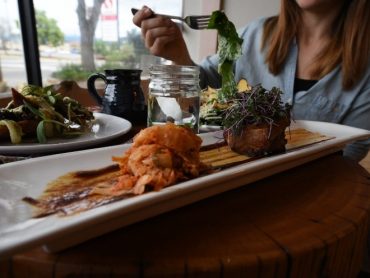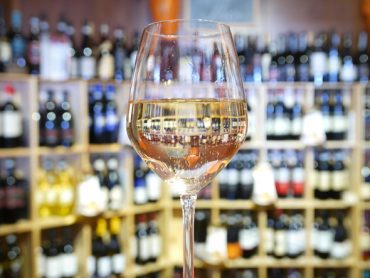In Vino Veritas LX – Making Sense of the Clean Drinking Craze
I’ve been wise to this growing trend for a while now but haven’t felt the urge to write about it until I happened upon a recent National Post (one of Canada’s leading newspapers) article using the catchy title of, “You can’t have your cake and drink it too.” The best parts of this editorial are its headline as well as its citing of specific examples of cocktails and wine products that infuse healthier foods. Beyond that, the author may have overstated a few of her critiques as this is indeed a trend that your lobby bar or restaurant should consider.
To start, a summary of what’s happening is in order. Fruit and vegetable juicing has long been in vogue as a means of cleansing our bodies of toxins by giving us the extra vitamins, antioxidants and micronutrients they need – in a blended and thus more readily digestible form – to more effectively self-heal and excrete these harmful compounds. This is where the now-mainstream superfoods of kale, acai, goji, chia seeds, spirulina and the like got their start.
From there, it’s all but a natural extension to move these superfoods into the realm of social lubrication by mixing them with some form of alcohol. And concurrent to this has been the clever marketing ploy of using the word ‘natural’ in the descriptions of niche producer wines or craft beers as a means of differentiating these labels from their large-scale competitors.
The crux of the National Post article is that alcoholic beverages made with a specific superfood, infused with other ‘clean’ ingredients or utilizing a phrase containing the word ‘natural’ are essentially misleading because they falsely imply that you will be healthier in the end – lighter hangovers, maintenance of normal brain functionality, less liver cirrhosis and all that jazz. I would disagree.
While by no means am I a certified dietitian or biochemist, I would say that clean alcoholic beverages are – drink for drink – healthier for you than ones with preservatives or artificial sugars because they are easier for your body to process. All those extra nutrients you are ingesting with the alcohol certainly play a role in helping your body maintain its constitution even as the alcohol attempts to undermine it. Contrarily, preservatives and artificial sugars serve to hinder the bodily processing of alcohol as well as depress our immune systems, thereby accelerating the abovementioned destructive effects of all forms of inebriation.
Now, it’s important to acknowledge the ‘drink for drink’ component of this argument because the licensing effect may be at work here. That is, by drinking a healthier alcoholic beverage, you may feel authorized to consume more overall. And more drugs in the system definitely means more damage.
Two other smaller disagreements I had with this editorial are that, first, alcohols are not sugars. Yes, they are carbohydrates – because they’re composed of carbon and hydrogen atoms – and they have a ton of energy – spirits are flammable after all – but a simple Wikipedia search will show that saccharides they are not. In fact, on the molecular level they more resemble fats, specifically triglycerides, than sugars. This is an important distinction because sugars, fats and ethanol (the alcohol we like to imbibe) all affect the body differently by initiating distinct hormonal cascades.
Secondly, supporting local producers does not necessarily guarantee that you are contributing fewer greenhouse gas emissions into the atmosphere. Yes, there’s a point to be made about the reduction in food miles, but oftentimes when you are reach economics of scale by becoming a large-scale producer, you also attain more energy efficiency on a per unit basis.
Now that we have my gripes covered, let’s get back on track by addressing the relevancy of this trend for your hotel.
Most notable is that when an article on fruit and vegetable juicing graces the front page of a national newspaper, you know that it’s a big deal – big enough for you to accurately discern that there is indeed a viable market for such products. And better for your guests to purchase these juices directly from your restaurant or grab-and-go eatery than to venture elsewhere.
Next, if you are looking for a fresh way to reinvigorate your drink menu and offer something new for your guests, clean alcoholic beverages may be just the ticket. That, or you can take this in baby steps by starting with an organic wine or ‘all natural’ craft beer.
In any case, there’s an opportunity for you to capitalize on this still-emerging trend. And in all honesty, if you don’t then one of your competitors will.
(Article by Larry Mogelonsky, originally published in HotelsMag on August 15, 2017)




